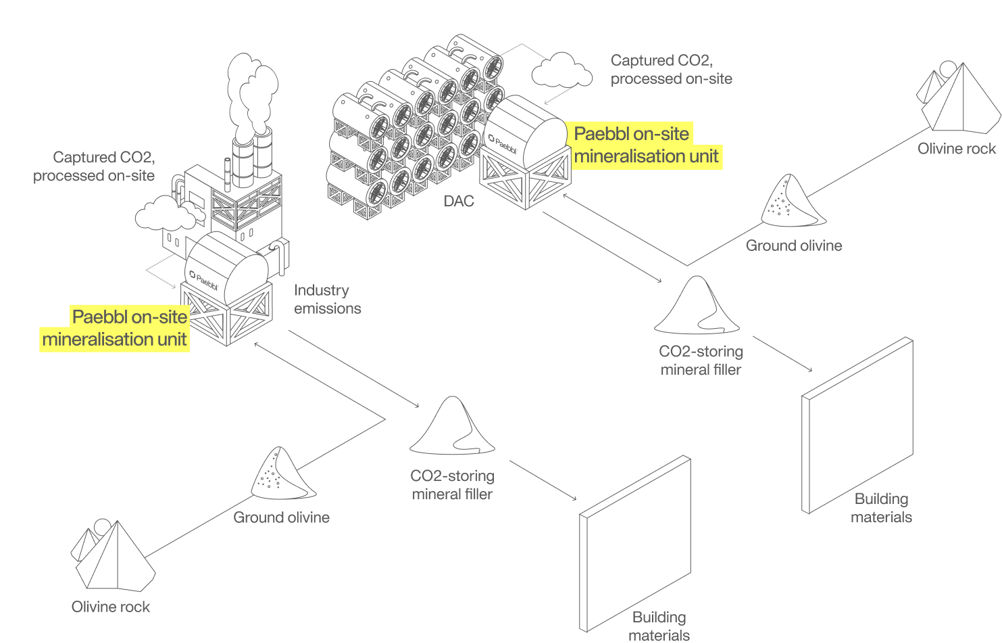Founded in 2021, the company’s patented mineralisation process converts CO2 into CO3, mimicking natural rock weathering by combining water and ground silicate rocks to produce a solid carbonate-based material. For every tonne of CO2 stored, around three tonnes of material is created. According to Paebbl, the silica-enriched mineral can be used as an inert industrial filler or as an ingredient in building materials, reducing the CO2 footprint of concrete by as much as 70 per cent.
Related content
The past 18 months has seen the company move from gram-scale lab tests to a fully functioning pilot unit, producing 250kg of CO2-storing product daily. In May 2024 Paebbl reached its first full ton of sequestered CO2 in its mineral product and has cast the first concrete structures in the field with captured carbon.
The latest funding round was led by investors including DACH-focused VC Capnamic, with participation from additional new investors including The Climate Pledge Fund (Amazon) and global construction and materials firm Holcim. Existing Paebbl investors 2050, Pale Blue Dot, and the Grantham Foundation also participated in the Series A raise.
The cash injection will be used to scale up the technology, delivering a demonstration plant in 2025 capable of sequestering one ton of CO2 per day, which will act as a stepping stone for the company’s first commercial scale plant.

“We're incredibly proud of the progress we've made in such a short time, but there's so much more to come,” said Paebbl co-founder and co-CEO Marta Sjögren.
“This funding enables us to take even bolder steps in our mission to make the built environment a cornerstone of the decarbonised economy. The challenge ahead is significant but so is the upside and opportunity.”
According to Paebbl, the Series A round will allow it to expand its existing hubs in Helsinki, Rotterdam, and Stockholm, as well as establish a presence in the UK for the first time.
“We have the chance to turn the built environment into the world’s greatest carbon sink, having taken a natural process, innovated upon it, and turned it into a commercially viable, scalable service,” said Paebbl co-founder and co-CEO Andreas Saari.
“With new investors on board, we can enter the next stage of our growth. To go from bench to pilot to demo in less than 18 months shows our team's ability to move at the speed necessary to win.”











McMurtry Spéirling defies gravity using fan downforce
Ground effect fans were banned from competitive motorsport from the end of the 1978 season following the introduction of Gordon Murray's Brabham...